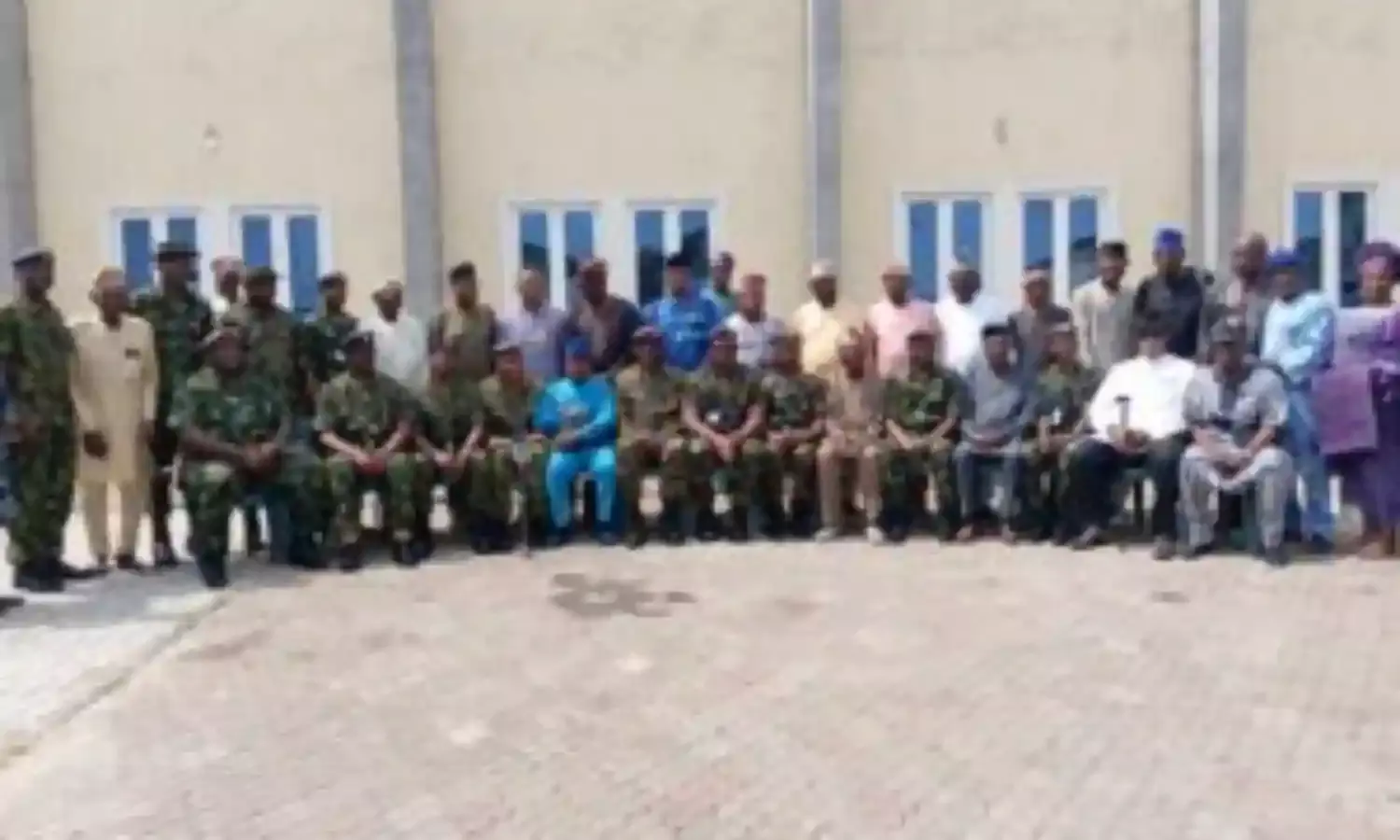NAF increases feeding fees, introduces accident policy for personnel
“Though, we know that this may not be totally sufficient but what is being sought is to see that they don’t suffer unnecessarily when injured.;

The Nigerian Air Force has taken a significant step toward improving the well-being of its students by increasing the feeding fees in its schools from N500 to N1,500 per meal.
This move, announced by the Chief of Air Staff, Air Marshal Abubakar Hasan, on Saturday, aims to ensure that children in NAF schools are well-fed and healthy enough to learn and grow into strong and mentally healthy individuals.
NAF Secretary, AVM Ahmed Bakari, confirmed this on Saturday during the CAS parley with veterans held at Logistics Command, NAF, Lagos State.
He explained that the CAS had graciously increased the feeding fees.
“He has also announced that priority would now be given to personnel and veterans before considering civilians for admission into Air Force schools.
“Some of us have been complaining that we have a lot of civilians in our schools but henceforth, priority is to personnel and veterans first, before considering others,” Bakari said.
In addition to the increased feeding fees, NAF has also introduced an accident policy to cater to injured personnel in service.
According to Bakari, the policy has already disbursed its first tranche, with some personnel receiving up to N5 million benefits for injuries.
“Though, we know that this may not be totally sufficient but what is being sought is to see that they don’t suffer unnecessarily when injured.
“At least, some form of succour comes immediately as an intervention from the service to any personnel who sustains an injury while in service,” he said.
Bakari said NAF had also overhauled its airfields, ensuring that some of them now have modern equipment that would make flying possible 24 hours a day.
For instance, he said the airfield in Kaduna now has an Integrated Management System (IMS) and working runway lights.
Bakari noted: “The CAS believes we do not have any business giving excuse for a particular airfield not being operational at a particular time of the day.
“NAF has also taken delivery of 12 brand new platforms in the past 18 months, which have been injected into the war effort.
“The delivery of these platforms was made possible through the vision of the CAS and the support of President Bola Tinubu,” he said.
According to him, NAF is expected to receive an additional 50 platforms, including fighter planes, transport planes, and helicopters, from 2025 to 2026.
He added: “We are sure that with the injection of these platforms, we will see more improvement in the fight against terrorism, insurgency, banditry and all forms of criminality.”
The NAF has also embarked on predictive maintenance of its aircraft, which has begun to yield positive results.
Bakari said the creation of the Air Power Centre of Excellence, where everything about airpower would be studied, was also a significant development.
“The Air Power Centre of Excellence is supposed to be that melting point for serving officers and retired officers and men to bring their expertise and knowledge to bear,” he said.

